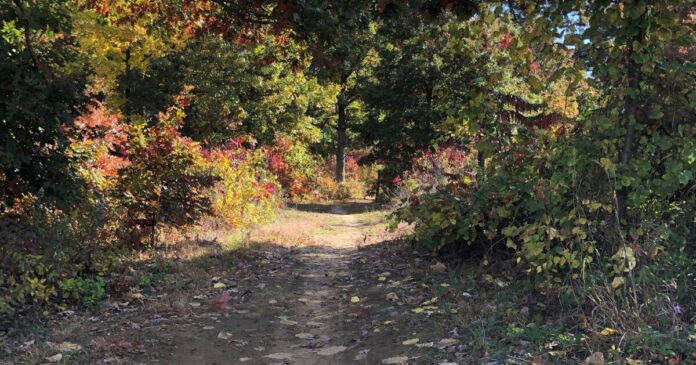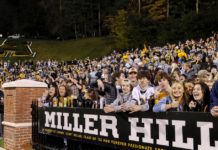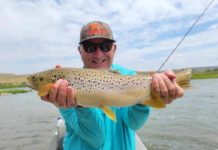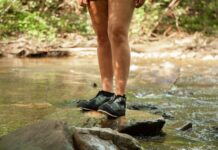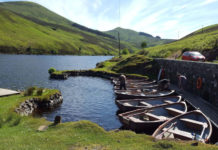A group formed by the Sierra Club and the New York State Division of Veterans’ Services aims to address barriers military veterans may face when trying to access outdoor spaces and adventures. The New York State Outdoor Rx Coalition came about in part because of a state law signed in 2020 mandating a statewide study of such barriers when it comes to public lands and waters in New York.
Retired Army Lt. Col. Aaron Leonard is co-chair of the coalition and spoke with WAMC’s Jim Levulis about the group’s goals.
Lt. Col. Leonard: So we know that veterans dealing with service-related trauma, those struggling to make a transition back to civilian life, for those folks, the outdoors often offers mental and physical health benefits. So the Outdoor Rx Coalition was formed by my organization, the Sierra Club, in partnership with the New York State Division of Veterans Services and other New York state agencies, and NGOs or nongovernmental organizations in 2020, to begin identifying and mitigating barriers that those service members may face when trying to access our state parks and public lands here in New York.
Levulis: What might some of those barriers be?
Leonard: Barriers range from how a veteran was raised, the cultural aspects of their exploration in the wilderness or what kind of histories nature might have for them and their families or could be transportation-related, like lack of public transportation from where the veteran lives to a state park or other public land, most commonly seen in urban environments, but also very common in rural environments is that lack of public transportation. Knowing veterans’ average age is 65 tells us that there’s plenty of veterans out there that would still benefit from time spent in our parks here in New York, if you don’t have access because they no longer drive for their physical abilities such that they need ADA accessible locations to go to preventing them from participating, like a fully able bodied, younger veteran might.
Levulis: And so the Outdoor Rx Coalition that you’re a part of, seeks to fill those gaps and make it so that veterans are able to get past those barriers. How exactly does that process work?
Leonard: There’s a few different ways that we’ve approached that. One is through education. So providing education to the veteran community, primarily right now through our website, outdoorrxcoalition.org, allowing them to learn how to explore our state’s parks and public lands on their own. Why they might want to do that, how they might get there. For example, if you are an older veteran living in the Bronx, and you don’t drive, can you get to a state park from the Bronx using public transportation. So educating folks on how to do that is one solution. Another one is through examining the current infrastructure across the state and determining what projects may need to be completed to bring up a piece of public land to be fully ADA accessible, perhaps for fly fishing or for skiing, or for hiking or walking, and doing a better job identifying those lands that already are fully accessible for all ages and all abilities. And finally, one of our goals for this coming year is to map out how public transportation connects to fully ADA accessible public lands, from all of our urban and rural environments that have access to public transportation and better map out what those possibilities are for veterans in those communities.
Levulis: And Lieutenant Colonel, what is it about the outdoors and experiences in the outdoors, whether it be hiking, camping, hunting, fishing, that both appeal to veterans and then therein also have a healing aspect when it comes to mental health issues such as depression?
Leonard: Well, in our structured programs, you know, those that have an outdoor leader and planned event or a group of veterans will get outside together. We’ve noticed that veterans who join us or join any outdoor program like ours, seem to transform during those experiences of those trips, they become more talkative, more engaged, especially those veterans who come to us reserved and more quiet or perhaps they were self-isolating before they joined us. And during that time, we can measure and we have measured through studies with our research university partners, that their sense of loneliness will decrease and their sense of belonging, in particular to that group will increase and those are two strong indicators of that person’s suicidality. Attacking directly a veteran’s sense of loneliness, in particular those who are suffering from depression and perhaps comorbid anxiety, post-traumatic stress. The elderly veterans that are isolating in their homes because of a lack of opportunities or a lack of physical ability, directly attacking that sense of loneliness is very important to allowing them to create a healthy and purposeful civilian lifestyle, wherever they’re at today.
Levulis: And you call New York’s Hudson Valley home if I understand that correctly, what are some of your favorite outdoor spaces?
Leonard: Yes, I live right across the river from West Point, a beautiful stretch of the Hudson. I would say that one of my most popular hikes that I like to personally takes you from Cold Spring, New York to Beacon, New York, over the Breakneck Ridge line. Has a fire tower views, has some great climbs and scrambles. Not for the faint of heart, that’s for sure. But it’s a good day in the woods.
Credit: Source link

















